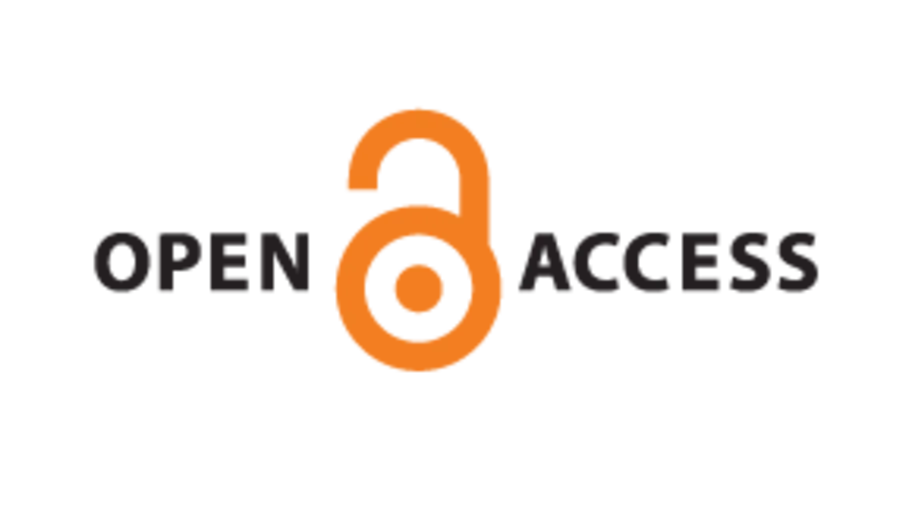
- Science news
- Open science and peer review
- Frontiers predicts enhanced services will be the future of scholarly publishing
Frontiers predicts enhanced services will be the future of scholarly publishing
Frontiers is an open-access publisher that was created by scientists to empower academics in scholarly publishing, turn peer review into a transparent, constructive and efficient process, and provide the best technology in order to service authors and researchers.
Perhaps the best way to understand what this means is to look more closely at the various services we offer at Frontiers. All open-access publishers listed in the Directory of Open Access Journals (DOAJ) offer basic open-access services.
Submit-review-reject/accept: Services for manuscript submission and review
Author retention of copyright: CC-BY licenses making authors the legal owners of their articles
Read and download: Unlimited free viewing and downloading for readers
Permanent storage: Permanent, robust storage of articles
Archiving: Archiving of articles on independent third-party systems, guaranteeing long term reader access to articles
Frontiers predicts that enhanced services will become central in scholarly publishing. Some enhanced services developed by Frontiers include:
1) Digital Editorial Office
Publishers traditionally use email for communications between authors, reviewers and editors, and many have licensed off-the-shelf software to manage their articles. But editorial processes can still be slow even with these tools. Frontiers was born in the digital age and it was natural for us to build an online Digital Editorial Office that offers editors the real-time services they need to effortlessly manage the journal, editorial boards, paper submissions and peer review. The Digital Editorial Offices gives them the full authority to perform their editorial duties online 24/7 and 365 days a year, guaranteeing their editorial independence.
2) Collaborative Peer Review
Our goal is to turn classical peer-review into an efficient, transparent, constructive and collaborative process. We achieve this through a number of steps: 1) we created a mandate for reviewers that focuses on the scientific soundness and correctness of research. This eliminates subjective predictions of potential impact and promotes an “impact neutral” (specialist) peer review as opposed to an “impact selective” (strategic) peer review. 2) All original research articles are endorsed by at least one Associate Editor and two Review Editors. 3) We also post the editors and reviewers’ names on the published paper, creating a chain of accountability and transparency. 4) We built an online Interactive Review Forum where authors, editors and reviewers are able to collaborate to improve the quality of manuscripts before publication and help papers reach their best potential. 5) We empower Associate Editors to make accept and reject decisions and enable Chief Editors to oversee all aspects of the peer-review process. Together these changes transform peer review into a process that is constructive, collaborative, accountable, transparent and efficient, which has been recognised with the 2014 ALPSP Gold Award for Innovation in Publishing.
3) Machine readable files allow text and data-mining
We want to make sure that our research articles are machine-readable, properly tagged and annotated, so knowledge can be easily extracted and used in all forms of text and data-mining analysis. With over 2 million papers published each year, and growing, machine readable files take the dissemination, life-span and use of research articles to the next level. In this context, we participate in the Horizon 2020 OpenMinTeD (Open Mining Infrastructure for Text and Data Mining) consortium.
4) P****ost-publication discussion
The Frontiers novel post-publication discussion system allows readers to comment on and debate published papers. In some cases, lively discussions have greatly enhanced the impact of the paper.
5) Article Impact Metrics
Frontiers was the first publisher to offer Article Impact Metrics back in 2008, providing views and downloads for every article we publish. Frontiers’ article-centric focus is refocusing attention on what is published – rather than focusing on the journals in which the articles appear. Many other publishers have since introduced article level metrics on their own online platforms. Our Article Impact Metrics are complemented with Altmetric® data on tweets, Facebook posts and media mentions on the paper.
6) Author Impact Metrics
Frontiers Author Impact Metrics aggregate individual article impact metrics for all the articles an author publishes in Frontiers and are available on authors’ Loop profiles.
7) Journal Impact Metrics
Journal Level Metrics (JLM) aim to provide objective measures of the efficiency, value and impact of the service authors receive when they publish in a Frontiers journal.
8) Press releases and social media
Exciting papers are systematically promoted to scientists and the general public, through press releases and social media. Frontiers articles have been featured on Wired, New York Times, The Guardian, Time magazine and many other media outlets.
9) Tiering
Intrinsic to our vision is the Frontiers Tiered Evaluation System, which gives us our name: Fron–tiers. Original research articles are what we call Tier 1 articles. Our Chief Editors invite authors of Tier 1 original research articles that have achieved a high number of views and downloads and have a high download to view ratio to write a prestigious Focused Review.
These Focused Reviews are mini-reviews which situate the original article in a broader context. We call these Focused Reviews Tier 2 articles. The Frontiers tiering system allows outstanding research with strong social relevance and academic excellence to rise and gain broader impact and visibility. We classify this crowdsourced tiering as prestigious as it unites quantitative and objective metrics with the wisdom of many experts and the expertise of the Chief Editor.
10) Research Topics
Scholarly publishing is normally highly structured with journal names, fixed editorial boards and restricted scope. Frontiers Research Topics allow researchers to break out of this mold and dynamically launch their own research topic, which allows topics of research to cut across the traditional boundaries created by journals, editorial boards and academic disciplines. While some Research Topics may cover highly specialised research areas, others are broad and tackle interdisciplinary challenges, such as solutions to climate change.
Each topic is managed as if it were a “mini-journal” with its own guest or topic editor. Well-defined procedures allow members of the community to propose new topics and possible editors. Editors are offered the possibility of collecting articles in an easy-to-read eBook format. Highly successful Research Topics may become permanent Frontiers Specialty sections within on our field journals and may earn the Frontiers Spotlight Award, launched in 2015 which rewards the best Research Topic editors with the organization of a conference.
11) Loop network and Loop profiles
Frontiers’ new Loop network is an innovative and highly effective way of disseminating our authors’ articles to relevant communities and increase their discoverability and readership. Loop includes comprehensive profiles for all Frontiers authors and editors, allowing anybody to explore their achievements and research interests. Our Loop profiles integrate into all Frontiers articles and journals, 34 Nature Publishing Group journals, and sync up with ORCID.
Based on research interests and publication history, Loop disseminates and suggests articles to relevant readers. In a world of ever-increasing research output and competition, Loop’s mission is to increase readership for articles and maximize impact for our authors. With over 4 million article views and 1 million downloads per month, we are beginning to see the effectiveness of Loop.
12) Science Heroes
We believe that the people behind the discoveries are the real heroes of our modern society and can inspire others to push the boundaries of knowledge. Our Science Heroes series consists of short videos in which leading scientists explain what motivates their work in simple terms. These videos are promoted in social and traditional media outlets.
13) Frontiers for Young Minds and public outreach
In times of exponential and unprecedented growth, humanity faces numerous challenges and researchers will provide many of the solutions. It is important that we, as a society, understand what comes out of research labs and it is important that researchers become engaged in outreach programs. We launched Frontiers for Young Minds to serve this function and build a bridge between children and scientists. As a free to read and free to publish scientific journal for young audiences it is a fun service for our authors and editors to engage with kids & teens, explain their papers and to receive feedback from the young reviewers. Frontiers for Young Minds also runs a blog on Scientific American, organises outreach events, and was named a “Great Website for Kids” by the American Library Association.
14) Honoraria and awards
We value the dedication and work of our editors and pay honoraria to our Chief Editors. Associate Editors and Review Editors may qualify for Editorial or Travel Awards which will soon be extended to Frontiers authors. In 2014, Frontiers distributed nearly $1 million in honoraria and awards.
15) Waivers and subsidies
Frontiers has never rejected a paper because the authors could not cover Article Processing Charges (APCs). In 2014, we awarded nearly $2 million in waivers, an amount which is growing year on year. We systematically subsidise new fields as well as academic fields with low budgets for APCs. This possible even though the cost of publishing an open-access article is less than half the cost of publishing in a subscription journal.
Frontiers is trying to develop a transparent APC model where article processing charges correlate more closely to the value of the services offered. We believe that a service-oriented approach to open-access scholarly publishing will stimulate competition and put pressure on enhanced service value.






